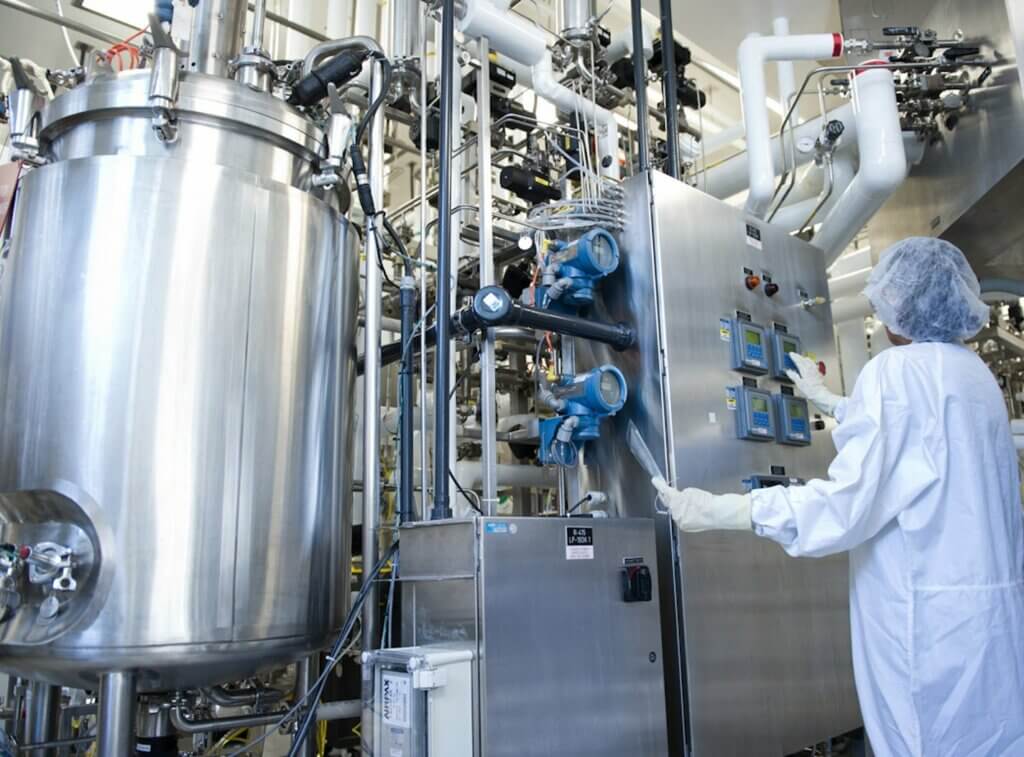Amylase is in a whole bunch of food products, but most vegans come across it in bread.
It’s a type of enzyme that converts starches into sugars, which can be useful in bread-making to speed up the rising process.
But amylase is found in both animal and plant sources, and can be cultivated with bacteria or fungi.
Table of Contents
How Is Amylase Made Commercially

If you read a little bit about amylase production, you’ll learn that it’s typically made using bacteria or fungi these days (usually bacteria like Bacillus).
It’s safer and more efficient than extracting from animal sources.
Unfortunately, that doesn’t mean that Amylase is always vegan.
In order for bacteria (and any simple organism) to grow and produce desirable products like amylase, it needs to be soaked in a medium that has “food” for it.
For amylase, as you’ll see if you read that research paper that I linked to, the broth looks something like this:
Inoculum preparation: The selected bacterial strains were inoculated in nutrient broth (consisting of (g L-1): peptone, 5; Beef extract, 3; NaCl, 5)
The problem is pretty clear.
If the amylase was created by a bacteria in a medium that contains animal ingredients, then it’s not vegan.
It’s not like beef (or other animal) extract is always used in the nutrient broth, but it can be.
Amylase is primarily made using fungi or bacteria. Unfortunately, the “food” for that bacteria or fungi is not always vegan friendly.
Can You Assume That Amylase is Vegan?
Basically, some amylase that’s produced from bacteria will be vegan, and some won’t be.
In cases like this, you can ask the manufacturer of whatever your food product is whether or not it’s vegan.
But with an ingredient this complicated, I don’t know if I would trust a random (likely non-vegan) customer service rep to dig deep enough to find the answer (they’d likely have to contact their amylase supplier).
So I don’t know if I’d even trust the answer I got.
That leaves us with 3 options:
- Never eat something with amylase to be on the safe side
- Trust the answer you get from a manufacturer’s customer service rep
- Always assume it’s vegan (essentially you’re saying it’s unreasonable to avoid and you can’t confidently find the correct answer).
I can’t tell you the right option.
Is Amylase Vegan-Friendly?
I see merit to all 3 arguments, but personally I’m leaning towards #3.
In the world we live in, being vegan is about avoiding animal products as far as reasonably possible.
There’s a very small amount of amylase in any product that might contain it, and it doesn’t seem reasonable to track down if it’s actually vegan or not. In addition, most bacteria or fungi is fed with plant-ingredients.
For the vast majority of vegans, I think amylase is a non-issue if you see it in an ingredients list.
